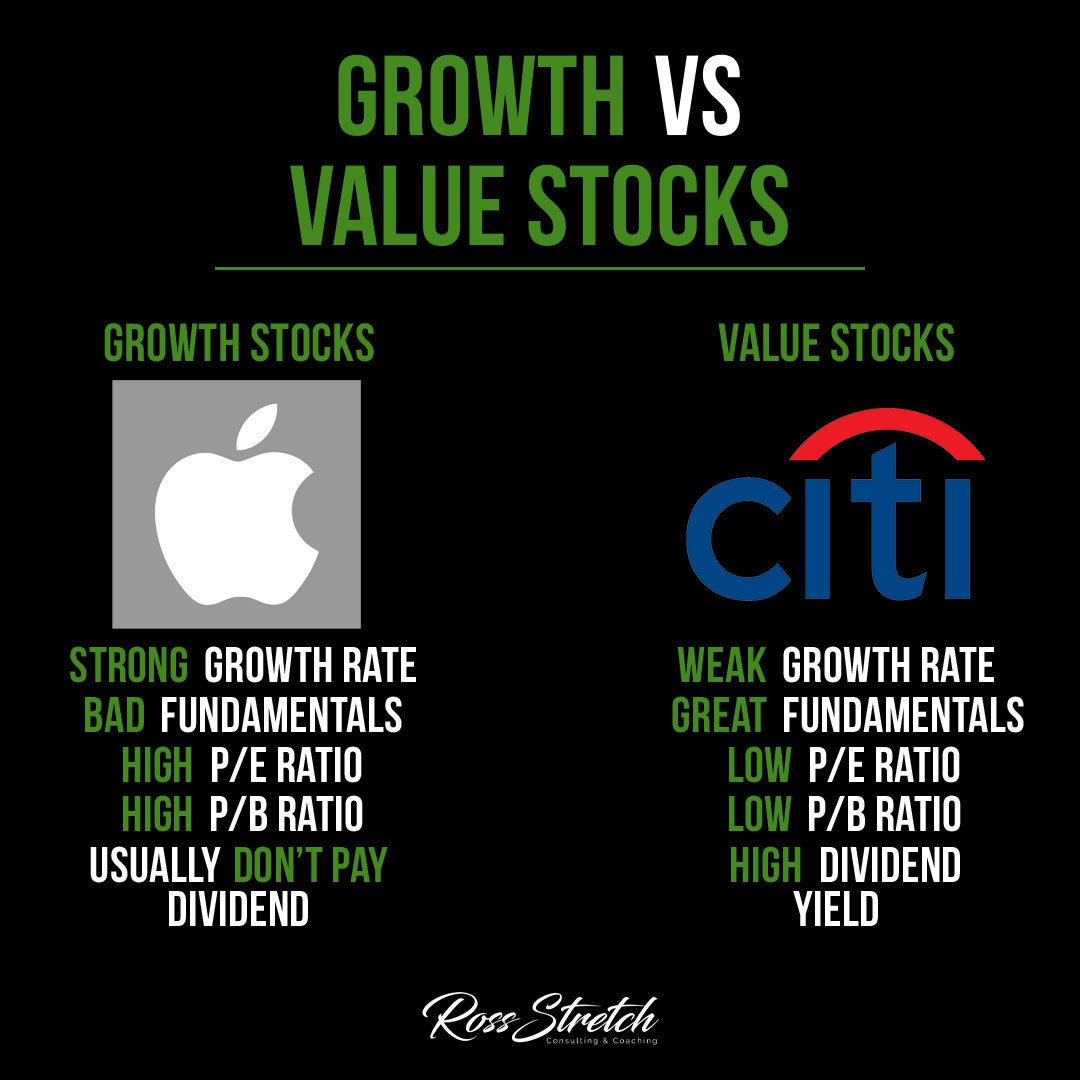Investing in value stocks has become increasingly popular among seasoned investors and beginners alike. 5StarsStocks.com has emerged as a trusted platform offering comprehensive insights into value stocks, empowering investors with the knowledge they need to make informed decisions. Whether you're seeking long-term growth or short-term gains, understanding the nuances of value stocks is essential.
In today's volatile market, identifying undervalued stocks can significantly enhance your portfolio's performance. This article aims to provide you with an in-depth understanding of value stocks, their characteristics, and how 5StarsStocks.com serves as an invaluable resource for investors. We'll explore strategies, tools, and expert insights that can help you navigate the complexities of value investing.
As you delve deeper into this guide, you'll discover actionable tips, real-world examples, and expert advice tailored to help you maximize your returns. Let's begin by understanding what makes value stocks a compelling investment opportunity and how 5StarsStocks.com can assist you in achieving your financial goals.
Read also:July Star Sing Rising Star In The Music Industry
Table of Contents
- What Are Value Stocks?
- Why Choose Value Stocks?
- 5StarsStocks.com Overview
- Key Characteristics of Value Stocks
- Valuation Methods for Value Stocks
- Investment Strategies for Value Stocks
- Common Mistakes to Avoid
- Current Market Trends in Value Stocks
- Expert Insights on Value Investing
- Conclusion
What Are Value Stocks?
Value stocks refer to shares of companies that trade at a lower price relative to their intrinsic worth. These stocks often possess strong fundamentals but are overlooked by the market due to temporary setbacks or market inefficiencies. Investors who specialize in value investing aim to capitalize on these discrepancies by purchasing undervalued stocks and holding them until their true value is realized.
Definition and Importance
Value stocks are typically identified by metrics such as price-to-earnings (P/E) ratios, price-to-book (P/B) ratios, and dividend yields. These metrics help investors gauge whether a stock is trading below its intrinsic value. By focusing on value stocks, investors can potentially achieve higher returns compared to growth stocks, especially during market downturns.
Why Choose Value Stocks?
Investing in value stocks offers several advantages over other investment strategies. Below are some compelling reasons why value stocks deserve your attention:
- Potential for Higher Returns: Historically, value stocks have outperformed growth stocks over the long term.
- Lower Risk: Value stocks often exhibit less volatility, making them an attractive option for risk-averse investors.
- Undervalued Opportunities: By identifying undervalued stocks, investors can capitalize on market inefficiencies and unlock hidden value.
5StarsStocks.com Overview
5StarsStocks.com is a leading platform dedicated to providing investors with actionable insights into value stocks. The website offers a wealth of resources, including stock analysis, market trends, and expert commentary, all designed to empower investors with the knowledge they need to succeed. With its user-friendly interface and comprehensive data, 5StarsStocks.com has become a go-to destination for value investors worldwide.
Features and Benefits
Some of the standout features of 5StarsStocks.com include:
Read also:Bleeding Heart Meaning Understanding Its Symbolism History And Cultural Significance
- Real-time stock analysis
- Expert investment advice
- Customizable watchlists
- Historical data and trends
Key Characteristics of Value Stocks
Understanding the characteristics of value stocks is crucial for successful investing. Below are some key traits that distinguish value stocks from their counterparts:
- Low P/E Ratios: Value stocks typically have lower price-to-earnings ratios compared to the broader market.
- High Dividend Yields: Many value stocks offer attractive dividend yields, making them appealing to income-focused investors.
- Strong Balance Sheets: Companies with robust financials are often favored by value investors.
Valuation Methods for Value Stocks
Evaluating the intrinsic value of a stock requires a thorough understanding of various valuation methods. Below are some commonly used techniques:
Discounted Cash Flow (DCF) Analysis
The DCF method involves estimating the future cash flows of a company and discounting them to their present value. This approach provides a more accurate assessment of a stock's intrinsic value compared to traditional metrics.
Price-to-Earnings (P/E) Ratio
The P/E ratio compares a company's stock price to its earnings per share (EPS). A lower P/E ratio may indicate that a stock is undervalued relative to its peers.
Investment Strategies for Value Stocks
Developing a sound investment strategy is essential for maximizing returns in value stocks. Below are some proven strategies:
- Dollar-Cost Averaging: Invest a fixed amount of money at regular intervals to reduce the impact of market volatility.
- Dividend Reinvestment Plans (DRIPs): Automatically reinvest dividends to compound your returns over time.
- Long-Term Holding: Value investing often requires patience and a long-term perspective to fully realize gains.
Common Mistakes to Avoid
Even seasoned investors can fall prey to common pitfalls when investing in value stocks. Below are some mistakes to avoid:
- Chasing Cheap Stocks: Not all low-priced stocks are value stocks. Conduct thorough research before making investment decisions.
- Ignoring Fundamentals: Focus on a company's financial health and growth potential rather than short-term market fluctuations.
- Overtrading: Frequent buying and selling can erode your returns due to transaction costs and taxes.
Current Market Trends in Value Stocks
The value investing landscape is constantly evolving, influenced by macroeconomic factors, industry trends, and technological advancements. Below are some current trends shaping the value stock market:
- Sustainability and ESG Investing: Investors are increasingly prioritizing environmental, social, and governance (ESG) factors when evaluating value stocks.
- Technology Disruption: Companies leveraging cutting-edge technologies are gaining prominence in the value stock universe.
- Global Economic Recovery: As economies rebound from the pandemic, cyclical sectors are attracting significant interest from value investors.
Expert Insights on Value Investing
Learning from industry experts can provide valuable insights into value investing. Below are some expert opinions:
Warren Buffett's Approach
Warren Buffett, one of the most successful value investors of all time, emphasizes the importance of investing in companies with durable competitive advantages. His philosophy centers on buying great businesses at fair prices and holding them for the long term.
Benjamin Graham's Principles
Often referred to as the "father of value investing," Benjamin Graham advocated for a disciplined approach to stock selection. His teachings emphasize the importance of margin of safety and thorough analysis in value investing.
Conclusion
In summary, value stocks represent a compelling opportunity for investors seeking long-term growth and stability. By leveraging platforms like 5StarsStocks.com and adhering to proven investment strategies, you can navigate the complexities of value investing with confidence. Remember to conduct thorough research, focus on fundamentals, and maintain a long-term perspective to maximize your returns.
We invite you to share your thoughts and experiences in the comments section below. Additionally, feel free to explore other articles on our website for more insights into the world of investing. Together, let's unlock the potential of value stocks and achieve financial success!
Data Source: SEC, Federal Reserve, Investopedia



